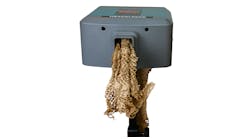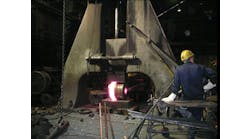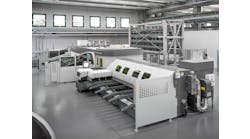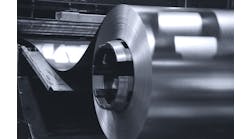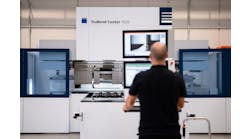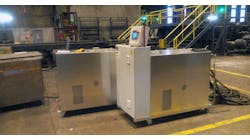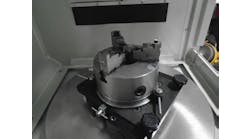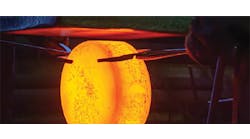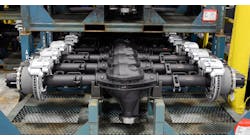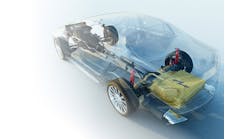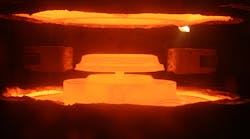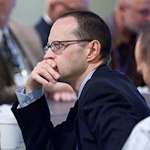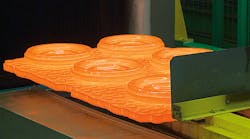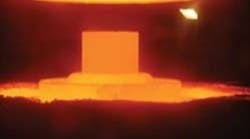Allegheny Technologies Inc. directors approved a $95-million capital investment project to expand the isothermal forging and heat-treating capacities in Cudahy, WI, to address growing demand from the aerospace jet engine market. The three-year project will establish ATI’s fourth isothermal press at that location, which ATI acquired in 2011 as part of its takeover of Ladish Co. Inc.
In addition to forging carbon and alloy steel, superalloys, titanium, and other specialty materials, ATI manufacturers castings, mill products, and machined components. Its specialty alloy products include titanium, nickel and cobalt alloys, stainless steels, and superalloys, as well as nickel-based alloy and titanium-based alloy powders.
The Wisconsin plant, known now as ATI Forged Products, has about 700 employees and the new capacity will result in up to 125 more workers, according to local reports.
The Wisconsin Economic Development Corp. approved a $7-million enterprise zone tax credit over seven years for the project. The specific amount of tax credits ATI will receive depends on job-creation and –retention targets, and the amount of capital invested.
Isothermal forging is a closed-die process in which the dies and the workpieces are heated to the same temperature, so that forming can take place without loss of temperature in the workpiece. It’s a preferred process for forming engineered parts, including jet-engine and other aerospace components in high-density lightweight alloys.
Last year, ATI entered into a long-term agreement to supply isothermal forgings to Pratt & Whitney, a manufacturer of jet engines for commercial and defense aircraft programs. Pratt & Whitney is expanding its own isothermal forging capabilities for turbine disks and compressor rotors, at its engine manufacturing complex in Columbus, GA.
ATI has not indicated the design or capabilities of the new isothermal forging press and heat-treating installation. Ladish installed the three isothermal presses currently in place at the Wisconsin plant. One is rated for 4,500 tons and another for 10,000 tons of forming capability. The third, rated at 12,500 tons, was installed in 2007-8 and described at the time as the world’s largest of its kind.
“We continue to invest in our advanced forging capabilities in support of our aerospace customer’s ramp-up of next generation jet engine production. Once completed and fully qualified, this critical growth project will enable us to meet the increasing production requirements for existing long-term agreements with our engine OEM partners,” stated Rich Harshman, chairman, president and CEO.
